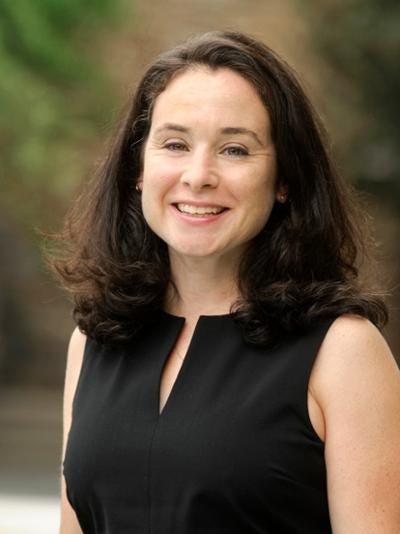
Hamilton faculty participated in an event “to engage the Hamilton Community in meaningful discussion about the experiences, challenges and ways forward in creating a more inclusive campus.” On Thursday, Nov. 9, the Justice and Equity Committee of the Student Government Alliance hosted a DEI Panel of Faculty in the Fillius Events Barn. Faculty on the panel included Sean Bennet, VP for Diversity, Equity, and Inclusion, Frank Coots, Director of Campus Safety and Catherine Berryman, Title IX Coordinator.
The panelists were asked questions by the J&E committee, including why they were interested in working in J&E, how it has tied into their current careers and career journeys, as well as how they work to accommodate different backgrounds in their line of work.
When engaging with students who come to campus with a range of personal experiences and perspectives, Bennett, Berryman and Coots expressed intentional interest in accommodating and acknowledging these differences. For Bennett, this often took on the role of engaging with alumni through travel, including those who may not have expressed the most positive experiences during their time at the College. This focus also included an awareness of accessibility on campus, a topic that Berryman echoed. Berryman also encouraged an acute focus on different backgrounds and worked to be attuned to how these shape people’s experiences during their time in Clinton.
Coots highlighted how Campus Safety operates as the only 24-hour service available to students on campus and highlighted the importance of the office acting as an inclusive space for all community members. “We have to be open, literally open,” says Coots, “but also available…to accommodate every student and one of the [ways] we talk about that is accessibility.” He highlighted how the office has implemented various new changes, especially those to support wheelchair users on campus, including installing a button to open the Campus Safety door and purchasing a non-ambulatory vehicle that can transport community members in wheelchairs. He noted how these ideas often come from students who push the community to become more inclusive.
One student inquired about the DEI office’s relationship with religious minorities, believing them to be excluded in the DEI space. Bennet responded with assurance that religion is undoubtedly a key component of diversity, though the office would welcome further conversation on the topic.
Panelists encouraged community members to take advantage of an open-door policy to ask questions and raise concerns. While this offer was appreciated by students and valued as an important facet of the J&E mission, students expressed that it was often an option approached with hesitation. One student suggested panelists take it upon themselves to appear at the meetings of student organizations, such as GSU (Gender & Sexuality Union). Bennett, supporting this offer, told the audience several times that he has always accepted invitations from student groups to attend their events and meetings. “You tell me where you want me to be, and I’ll be there,” said Bennett, who highlighted his frequent visits to Commons as well, where he hopes to be seen by students and create a space where they feel comfortable saying hello.

Berryman similarly acknowledged how she was in support of attending student-led meetings. However, she noted how her role affects this ability: “I am also conscious of my role, where I don’t want to show up unannounced.” Ultimately, she suggested for her and her campus investigator, Judith “Judy” Trimboli, to send out an email next semester to student groups to offer their presence at meetings.
Another student inquired, specifically to Coots, about occurrences where “parties with ‘Black and Latino music’ get shut down faster than parties with white music playing,” and asked if this has been discussed. In response, Coots explained that Campus Safety does not patrol residence halls, unless they are called (such as for medical purposes) or mandated sweeps to ensure a lack of fire hazards. However, students can call in complaints regarding music on campus which Campus Safety does respond to. These calls may also be a product of individual bias: “Certainly where there is an evil mind, there’s an evil way, so if someone really wants to be that person and they want to break up the party because they don’t like that type of music, they absolutely could do it.” Coots did also describe how Campus Safety officers are required to wear body cameras, how all patrol vehicles are GPS-tracked and how new recording resources are being acquired for the office as the older version “failed.” “We have used technology to ensure that the officers are conforming and following policy,” says Coots.
The panel was asked several other questions throughout the event, including how they support students and respond to their inquiries, why they chose to participate in a college environment, gendered language’s role on the campus and a request for an assessment of the Alexander Hamilton Institute for Western Civilization.
Overall, the panel allowed students to inquire about DEI on Hamilton’s campus and fostered an open discussion covering a range of Justice & Equity topics. The Justice & Equity Committee encouraged students to join the committee, and reach out with any concerns or topics they would be interested in collaborating on.
















